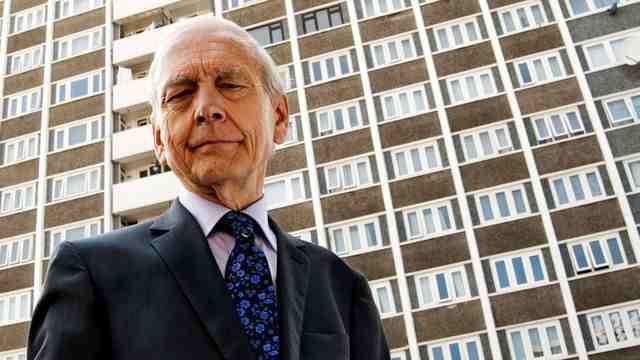
Outraged campaigners have attacked the BBC for screening an “offensive” documentary about the benefits system.
Campaigners say that the documentary – presented by veteran BBC journalist John Humphrys – was “shockingly poor” and little better than “propaganda” for the government’s welfare reforms.
The BBC has received 136 complaints about the programme, of which “about 45” mentioned its coverage of disability benefits.
The programme, “The Future State of Welfare”, claimed that government figures showed that “three-quarters of new claimants who were tested were deemed not to merit” employment and support allowance, the new replacement for incapacity benefit.
In fact, government figures show that of those tested, and once the many successful appeals are included, only just over half of claimants have so far been found fit for work.
The documentary also failed to point out the extensive criticisms of the severity, inaccuracy and inflexibility of the controversial “fitness for work” test, the work capability assessment (WCA).
Instead, Humphrys told viewers that “more stringent” tests had been brought in to “try to flush out people who are claiming on health grounds when they should not be”.
He also failed to point out that government figures show that incapacity benefit fraud is just 0.3 per cent of spending.
A BBC News spokesman said the programme could not be described as “disablist” because “those who are genuinely unable to work through disability or incapacity should not be impacted by the change in policy we examine”.
He refused to accept that the BBC should not have used the “three-quarters of new claimants” figure, or that the programme makers had misunderstood what the figures actually showed.
The programme makers have also been criticised for asking pollsters Ipsos MORI to put a “leading” and “loaded” question about IB to members of the public.
The pollsters asked those taking part if they agreed with the statement: “We need stricter tests to ensure people claiming IB because of sickness or disability are genuinely unable to work.”
Tom Mludzinski, a senior research executive with Ipsos MORI, said the company did not believe it was a leading question.
He said: “We had the chief executive and the managing director look at the question to make sure it wasn’t leading.”
But he accepted that few of those questioned would have known what the WCA actually entailed.
He said: “I’m sure it is not a great deal [of people] but that is not to say that people that don’t know about it don’t have an opinion.”
Labour MP John McDonnell said he was “shocked” by the “offensive” documentary, which “bears no relationship to reality” and was “based on prejudice”.
Disabled activist John McArdle, co-founder of Black Triangle, which campaigns against the unfair use of the WCA, said he was “disgusted” by the programme, which “reinforced stereotypes of people on incapacity benefit and employment and support allowance”.
He said: “We have been working solidly for the past couple of years to dispel these myths and programmes such as that are grossly irresponsible in that we see a responding rise in hate crime and victimisation of disabled people.”
The disabled blogger Mason Dixon Autistic, who has complained to the BBC, said there were “more omissions, half-truths and blatant untruths in the programme than there are minutes in it”.
He said there was “no intention to be balanced or rigorous” with the “investigation”, and added: “Talking points which are common among government ministers and newspapers hostile to benefit claimants were presented as concrete facts and clearly were intended to advance the shared agenda of all of them towards Britain’s existing welfare system.”
The BBC spokesman said Humphrys had interviewed a woman with ME who had gone through a WCA and – he claimed – “clearly outlined how distressing she had found it”.
He added: “Both the BBC and John Humphrys consider the programme to be a success – it challenged preconceptions while remaining a balanced and accurate analysis of both emerging policy and public opinion in this highly contentious area.”
News provided by John Pring at www.disabilitynewsservice.com

so was panorama programme a blatent gov spin show to vilify those on benefit and focused on high profile fraud which is rare rather than norm. i was outraged to see the sheer arrogance of a bbc prog i still had faint hope in.
British Bollocks Corp.
I complained about both progs, got a bland reply re Humphreys and still waiting for a response re Panorama, doubtless will be equally inane
I complained but got no reply